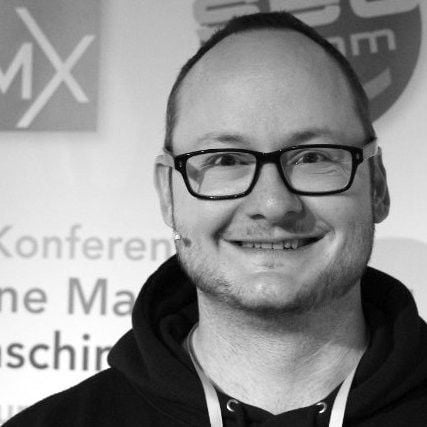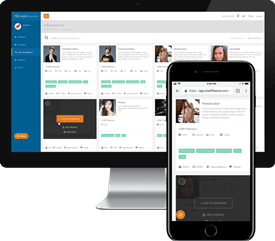Last Updated on June 8, 2020
Trying to build up your expertise? As you’re offline at conferences and meeting those in your community that command speaking slots, have you noticed anything about the majority of them? They write. The reality is, authors are sought after for the best interviews, speaking slots, and media offers, which of course leads to the best product sponsorships (i.e. the goal of many top tier influencers).
Telling you to become an authoritative writer is easier than actually becoming one, so let’s start from scratch and walk through the process from never having written to self-publishing your first book. I’ll try to do this in under 1,000 words so you can focus on the actionable and less on the puffery that this topic usually attracts.
Getting Started
The trite advice on how to get started writing is to just get started writing. Thankfully Mike Troiano is a bit more detailed in his post on getting started writing online. At this point you should already understand the ‘why’ behind writing for the purpose of both improving visibility as well as becoming an authority, so from his article let’s look at his ‘how’ — as you can see, most of the important process for him is brainstorming and saving those as drafts, editing them after a day, kicking them around to others for feedback, and then incorporating that feedback over time as he mulls over a post.
Note that not all the processes are the same. For instance, I created a list of 29 topics related to influencer marketing, worked on sorting them into an outline with 1–2 sentence descriptions of what the articles would be about, and then each week I did a sprint to build out an article from title to final draft. Thankfully I have a good editor in Andrew to make sure I don’t come off as too much an idiot (sorry Joe, yes you do). Damnit Andrew!
Editor’s note: That was all Joe; I didn’t do it. I swear.
My process therefore is actually more similar to Jeff Goins and how he goes about writing novels. He starts with the rough story idea, has it roughly outlined, backed with appropriate research and study, and only then fills in those gaps to complete the story. This is the process that works for me, but you may find that Mike’s approach works a bit better for you.
Tools to Keep you Moving
After you get started writing and are knee deep in the sludge of prepositions, oxford commas, and…ellipses, you might need some tools to keep you organized and push you towards the finish line.
- Editorial planning, research, and the basics — CloudPeeps compiled a solid list of a variety of tools. You’d be amazed how much can be accomplished with the right research and grammar checkers when it comes to organized writing and meeting deadlines.
- Productivity — pet peeve: life hacks for aspects of my life that don’t require hacking. However, Chris Danilo has a list of some tools I definitely agree with, when it comes to simply keeping you focused on putting the words on paper rather than refreshing Facebook. ToDoist and Evernote alone can keep you really focused. I couldn’t get the meditation tools to work on me, but maybe they’ll help you more.
- Market your work — As Copypress says: like all forms of content, if you’re creating your masterpiece in a vacuum no one will know about it; get it shared out, tell people what you’re working on, brand yourself alongside the writing you’re producing, and collect your best work for compiling into that major authoritative piece.

Publish that Book
This is the stage I’m at, as a FYI. After this article is in the can and I get through the next two topics I’ll be able to provide a comprehensive guide on becoming a top tier influencer, and then pair it with my previous guide to create a book. As an aside, I’m also going to promote it primarily via Intellifluence; how is that for dogfooding?!
Let’s talk about your book though. I’m still working on my first, but Yann Girard has cranked out 9 books as of March 2017; much of his advice is similar to what we suggest throughout our blog on constant promotion and audience growth. The same was true of Poornima Vijayashanker on her self-publishing experiments. There’s really no magic to formatting and selling on Amazon; I just want to point to these two pieces so you understand how vital promotion is to getting success with the book, which of course leads back to the beginning of our journey on leveraging the published material as a means to gain authoritative status in your niche. If you need additional details on how to specifically self-publish on Amazon Paul Jarvis has written a monster article on how to do it — yes, I did it again, because he also speaks to the absolute importance of promoting it.
Or Podcast?
If writing isn’t for you, the same appeal to authority can be found by hosting a niche podcast, interviewing other niche experts. This is exactly what the PositivePhil Podcast does, interviewing a wide variety of experts, which also helps to satisfy the going offline for networking purposes component to audience building — the man is always hustling! This can provide the same allure as an author, because if you remember back to the co-citation importance of authority, his constant airtime with other positive and powerful individuals gives him that similar allure.
Whether you decide to focus your words onto paper or into a microphone, when it comes to building up authority, there’s no better way over that 10,000 hour ‘becoming an expert’ period to actually show off your expertise. It takes time and effort to be seen as an industry expert, but by focusing on the above approach, any influencer with a desire to succeed can make it happen.

Joe, CEO and Co-Founder of Intellifluence, has over 25 years of experience in SEO, leading several successful marketing companies and providing expert consultation. He is the author of The Ultimate Guide to Using Influencer Marketing, which is available as an eBook or in print.






